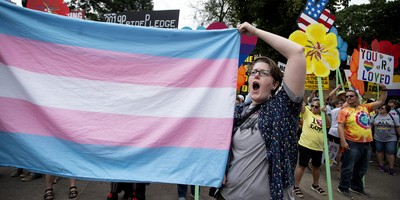But the fact is that dumping billions more in education will have little payoff and has arguably created more problems than it has solved.
The most recent issue of Academic Questions, the journal of the National Association of Scholars, addresses one aspect of the problem: the higher-education bubble. With the mounting cost of higher education -- driven in part by the infusion of government subsidies -- many new graduates are finding that the degree they've earned is not worth the investment. At one time, a college degree was a virtual guarantor of secure, well-paying employment. Now, most college grads leave school with large debts -- more than $27,000 on average. It's money they will struggle to pay back if they're lucky enough to get a job in this weak economy.
A college degree no longer signifies that the recipient is either well-educated in the traditional sense or that he has acquired specific skills suited to the labor market. As the former president of St. John's College in Santa Fe, John Agresto, argues in his essay, "The Liberal Arts Bubble," were it not for the continued infusion of government subsidies and the influx of foreign students, the bubble might already have burst. Agresto points out that the liberal arts, once the backbone of the higher education system, has fallen into a precipitous decline.
"What was once normative -- that Jake or Suzie would go off to college and study some history, some literature, learn a second language, and perhaps major in philosophy or classics -- has not been the case for years," Agresto writes. By 2008, the number of bachelor's degrees had risen to 1.5 million Americans, but few of these degrees were in the traditional liberal arts. Barely 2 percent of BAs were awarded in history and only 3.5 percent in English literature. Agresto points out that more than a third of undergraduate degress are now earned in business, health professions and education. Colleges have become trade schools by another name -- but far more expensive ones than their for-profit counterparts.
Recommended
It's no wonder that students have fled the liberal arts. For centuries, the liberal arts passed on what was best in Western civilization. Agresto explains that what kept Americans from forsaking the liberal arts in favor of the purely utilitarian, despite our practical bent, was that our youth should be encouraged "to pursue inquiry into serious and perennial questions."
But he also notes that the humanities in particular were considered the "Keepers of the Culture" at a time when we actually believed we had a culture worth keeping and passing on to another generation. Since the 1960s, however, our culture has been under attack, our history rewritten as one of unmitigated oppression and the values our Founders and subsequent generations held dear reviled. Humanities courses in liberal arts colleges across the country have replaced the canon of Western civilization with course offerings in gay scholarship, feminism, race studies and the like -- all aimed to show our benighted past and to condition us to a more tolerant future. That is, tolerant of every group except for white, heterosexual males.
Students have fled such course offerings in droves to pursue technical or professional skills in colleges that now award most of their degrees outside the liberal arts. Meanwhile, their parents -- and increasingly the students themselves, through student loans -- are left footing the bill for degrees that neither pay off in the marketplace nor enrich the intellectual lives of those on whom they are conferred.
Not even President Obama's billions will keep this bubble from bursting because it contains nothing but ever-expanding hot air.

























Join the conversation as a VIP Member